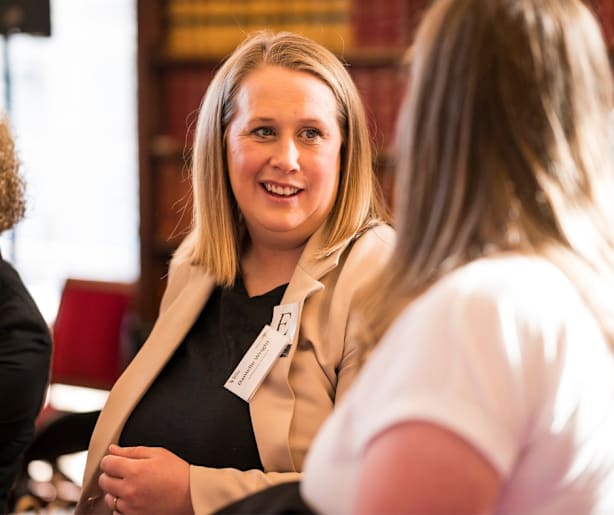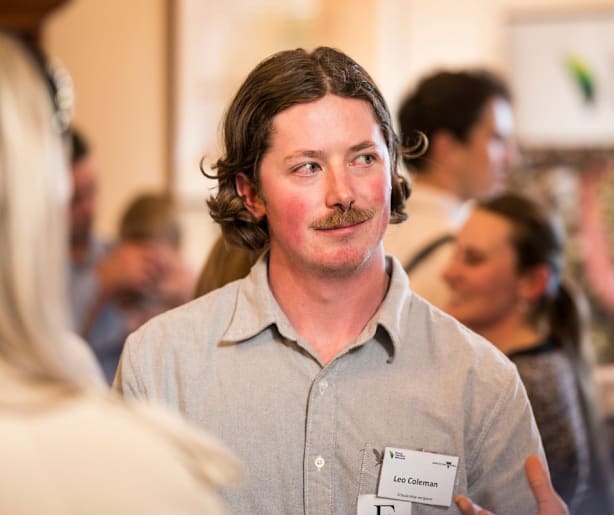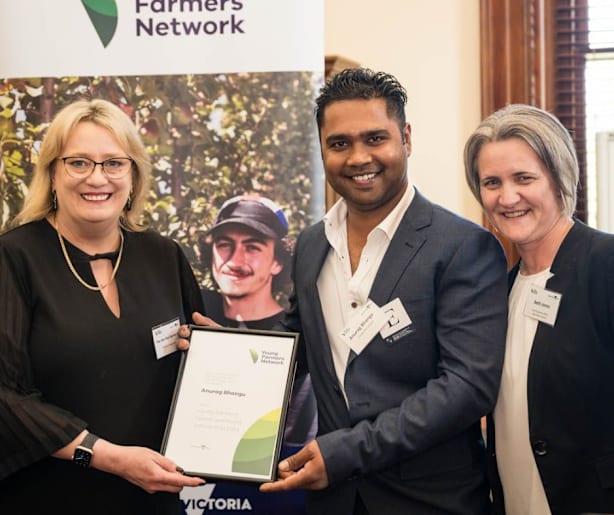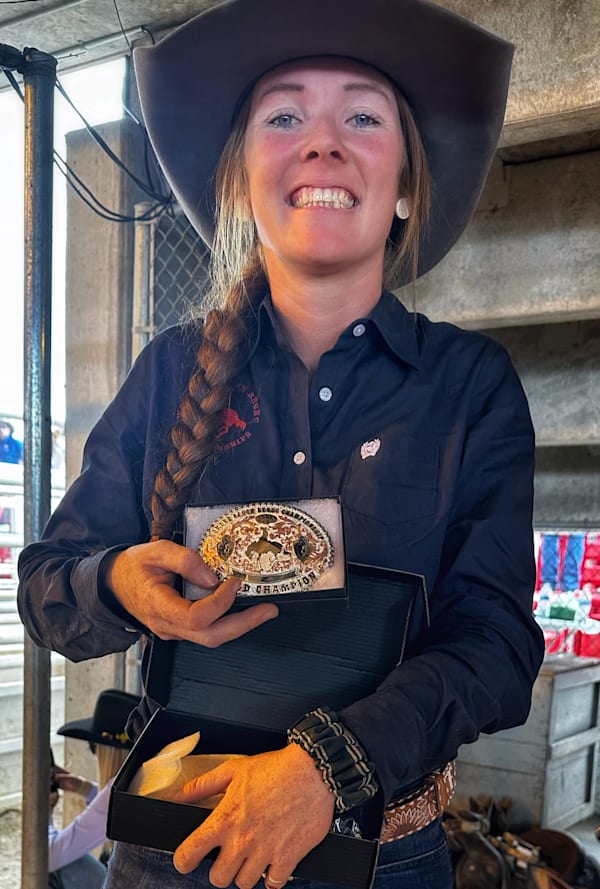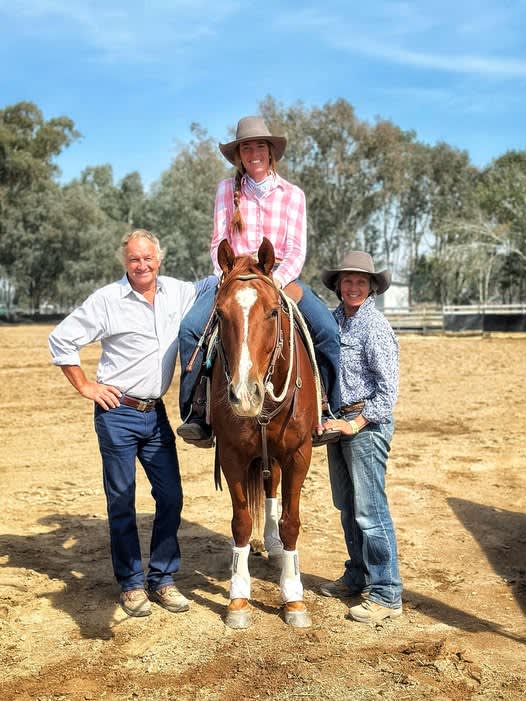THE state government is investing in our rising farming leaders with the announcement last month of this year’s Young Farmers Upskill and Invest Scholarships which encompasses a broad range of agricultural activities across Victoria from beekeeping to cheesemaking, viticulture to pasture improvement.
The Minister for Agriculture Ros Spence presented the 16 recipients with their certificates for their scholarships worth up to $5000 each to pursue new learning opportunities and a further $5000 to assist putting their new skills into practice.
“The Young Farmers Upskill and Invest scholarship is about encouraging our future agriculture leaders to be adaptive and responsive to the challenges and opportunities the industry presents,” said Ms Spence.
“We are proud to have supported 133 Victorian young farmers (since 2015) to reach their potential, and in turn they help us secure our food system and strengthen our local economy,” she said.
Successful applicants get the benefit of training that focuses on increased knowledge and expertise in areas such as irrigation, agronomy, conservation and land management, while gaining core business skills including accounting, human resources and marketing.
Latest Stories
The latest group of successful applicants will, on completion of their studies, be able to invest in modern technology and equipment that will enhance their professional development.
Previous scholarship recipients have gone on to leadership roles such as the Victorian Young Farmers Advisory Council.
One such aspiring young farmer is Anurag Bhangu, a Gippsland beekeeper, who is keen to improve his skills through a workshop on artificial insemination of queen bees and a bee breeding course.
Anurag plans to invest a queen bee artificial insemination kit.
This will allow him to select queen bees better suited to the cooler climate and resistant to Varroa mite.
For another young man, his passion is wine.
Leo Coleman has worked for two years at one of the oldest wineries in Victoria, near Geelong, with his role mainly being vineyard operations.
According to Leo, Bannockburn Vineyards has a focus on producing quality pinot noir and chardonnay wines as well as many others.
Leo grew up with an agricultural background on his parent’s venison farm in the Otways.
“They always used organic practices and believed in being soft on the earth,” he said.
Obviously, his parents knew the challenges of making a living on the land and urged their children to pursue careers outside of agriculture.
“I finished school and then went to university to study civil engineering,” said Leo.
“It was not for me, but my parents did not want us to do agriculture,” he said.
It was while working in a wine shop and through some contacts and friends that the suggestion of studying viticulture came about.
“There is a lot of applied science, and I like the food and wine elements,” said Leo adding he enjoys the challenge of winemaking.
For Leo, the scholarship is invaluable because it allows him to upskill by completing a two-year diploma in viticulture part time.
He has a long-term goal of planting his own vineyards but realises he needs to start small and gradually put the profits back into growing the business.
Leo quotes from an experienced winemaker, “good wine starts in the vineyard”.
The other part of the scholarship is being able to invest in an alternative to expensive French oak barrels with a new affordable and sustainable product.
When Leo completes his diploma, he will purchase a single 250 litre ceramic wine barrel.
“The ceramic barrel which lasts 100 years will pay for itself, and I will put the profits back into more ceramic barrels, “said Leo.
He describes it as getting an “initial leg up”.
Leo is optimistic about the wine industry in general believing it is in a good position and there is plenty of innovation occurring.
Also from south-west Victoria is Danielle Wright who with her family helps run a 240-cow dairy farm.
Danielle started her journey in 2016 when she married into a six-generation dairying family at Panmure.
“I grew up in Mildura surrounded by oranges and grapes,” she said.
The mother of three children aged five, three and one hopes to continue the tradition and pass the farm onto the seventh generation.
With an eye to diversification to ensure that longevity Danielle is learning artisan cheese making and investing in a portable cool room to age her product.
“Dairying is a beautiful industry,” said Danielle.
“I’m very lucky people are willing to take you in and welcome you”.
“Just being able to talk to other people and talk to older generations” was important for Danielle.
“We have here a big focus on sustainability and environmental factors,” she said.
“Our goal is to pass this farm on in better condition than when we took it over,” said Danielle.
Farm practices include low tillage and low impact spraying.
Danielle has a Diploma of Agriculture and has taught at the local TAFE college so has insights into running an agricultural business.
The farm which trades as Gully View Dairy sells to milk processor Frestine but the plan is to use traditional milk byproducts to make butter, buttermilk and cream.
Danielle is also looking at an evolution into producing a range of hard and soft cheeses using the whole milk on-site and selling at markets.
“We will take 12 months to feel out the market and what people like”, she said.
Setting up as a small processor requires a lot of working through “rules and regs” which are more aligned with big operators than smaller businesses, said Danielle.
On completion of her short cheese making course in Daylesford, the purchase of a cool room will be used to age cheeses from nine months to two years.
Danielle and Leo commented on how much they enjoyed meeting the other recipients and the diversity of farming activities.

